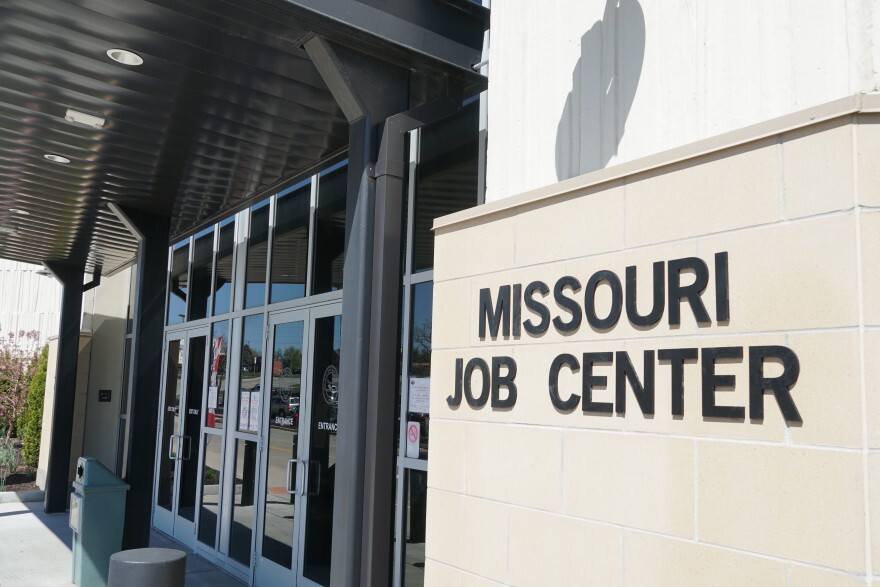Tracie Engelmeyer was among hundreds of bus drivers who were furloughed in St. Louis County in March 2020 because of the pandemic. School-district authorities told them that even though drivers are contracted labor, they would qualify for unemployment benefits and urged them to apply.
Engelmeyer recalled the conversation she had with a school district representative during a Thursday hearing of the Missouri Senate Appropriations Committee.
“I said, ‘Are you sure?’ Because I’ve worked here 24 years, and I know we don’t do unemployment,’” Engelmeyer said. “And she goes, ‘No, this year is different…This is a pandemic.’”
Engelmeyer then called the Missouri Department of Labor and was assured that she qualified for the pandemic unemployment program. So she and 225 bus drivers in her union applied, and many were given benefits.
Almost two years later, Engelmeyer is still fighting the state’s attempt to have her repay $6,600 in unemployment benefits the labor department now says she didn’t qualify for.
She’s among roughly 46,000 Missouri residents who the state has asked to repay more than $150 million of overpayments made in 2020, according to the Missouri Department of Labor and Industrial Relations.
On Thursday, the Senate Appropriations Committee debated a pair of identical bills sponsored by Sens. Lincoln Hough, R-Springfield, and Doug Beck, D-St. Louis County, that would waive the requirement for residents to repay state unemployment overpayments and to streamline the waiver process overall.
“What we’ve found – and Sen. Hough can probably attest to this – is the way this has been handled since March of 2020 has been a disaster,” Beck said. “I would like to get this taken care of. And it’s the right thing to do for the Missourians that were put in this position in the first place.”
Hough said he and Beck have “probably fielded perhaps the lion’s share of the correspondence with constituents – not just in our districts, but around the state – that are dealing with this.”
The state saw a historic number of Missourians apply for unemployment benefits in 2020. But like many other states, Missouri later realized that their agencies had made some mistakes. Some people who received unemployment benefits weren’t eligible, and others were overpaid.
The state began garnishing wages and putting liens on tax returns of those who were overpaid. Gov. Mike Parson was adamant that he would not accept federal permission to waive overpayments.
But in July, the Parson administration changed course.
Missourians started receiving letters from the state saying they could avoid paying the federal benefits back if they applied for a waiver within 30 days.
However, these Missourians still have to pay for any state-funded unemployment overpayments — which is something that both House Republicans and Democrats pushed back on this spring.
Stressed bus drivers
During Thursday’s hearing, several bus drivers spoke about the immense stress that bus drivers have endured trying to stay safe during COVID, while also trying to navigate the unemployment waiver process.
Retired bus driver Bob Ford of Columbia said a number of bus drivers have successfully appealed and do not have to pay back the unemployment benefits that they’ve received. But others who appealed with the same criteria were denied.
“At times, our drivers are being told different responses by different people they talk to at the same state office,” Ford said.
Ford, like other witnesses at the hearing, described the challenges they’ve had in calling the state agency and not being able to get through or being cut off after waiting on hold for several hours.
Drivers are living with the uncertainty that the state could put a lien one their home or garnish their wages, he said.
“Citizens who follow directions of a state agency – which they did – should not have to have this added stress,” Ford said. “As a state we depend on bus drivers to keep our children safe while getting them to our schools.”
Ben Terrell, legislative liaison for the Missouri Department of Labor, was questioned by the committee about inconsistencies in the waiver process.
“We have to look at the facts of each circumstance,” he said. “And so you could have two folks who on paper look very similar, but in reality they have circumstances that change the determination of unemployment.”
Sen. Barbara Washington, D-Kansas City, asked Terrell if the people who are denied are being told why, since most who spoke at the hearing said they didn’t know.
Terrell said he wasn’t sure.
“The law doesn’t work if it’s not consistent,” Washington said. “And so I totally understand that facts make a difference. But if folks are saying that they have the same facts …then we have to figure out why one person would be totally approved and one is not.”
Missouri Independent is part of States Newsroom, a network of news outlets supported by grants and a coalition of donors as a 501c(3) public charity. Missouri Independent maintains editorial independence.





